10 June.
The train we boarded in UB was similar but not identical to the train from Beijing. It was, perhaps, a tad newer and it carried an air of shabby elegance. It’s possible that I boarded with altered expectations but the mattress seemed both firmer and a bit wider than on the Chinese train. The tradeoff for the extra width was that it made the process of moving bags around a bit trickier.
The train left UB at about 21:00 and we’d chosen to maintain the same cabin configuration with me, John, Anne, and Groud in one compartment while Ana, Erin, Lu, and Rose shared the other. I think with larger and differently constituted groups, Groud likes to have people change their sleeping arrangements to avoid a clustering group dynamic. We were all comfortable with this first grouping and had already grown quite comfortable with everyone else on the tour so we thought, why change? The facilities on this train were much cleaner than on the China train perhaps owing to having two female conductors (or provonikas) and were actually gender separate.
Before settling in for the night, the Kiwis and I began to talk about our suspicions regarding the currency transactions. I think we astonished G who seems naturally inclined to think the best of everyone. She may even have initially thought we were making a joke and I don’t know if we ever convinced her. (By the way, I don’t recall anyone adding a suspicion about the cashmere diversion and that seems to have come into my mind only as I typed this but someone may have mentioned that as well.) We looked at it in good spirits, had a laugh or ten before turning out the lights and curling under the covers for a chilly night’s sleep.
           Now it’s time for another report on adventures in border crossings. The train arrived at Sükhbaatar station 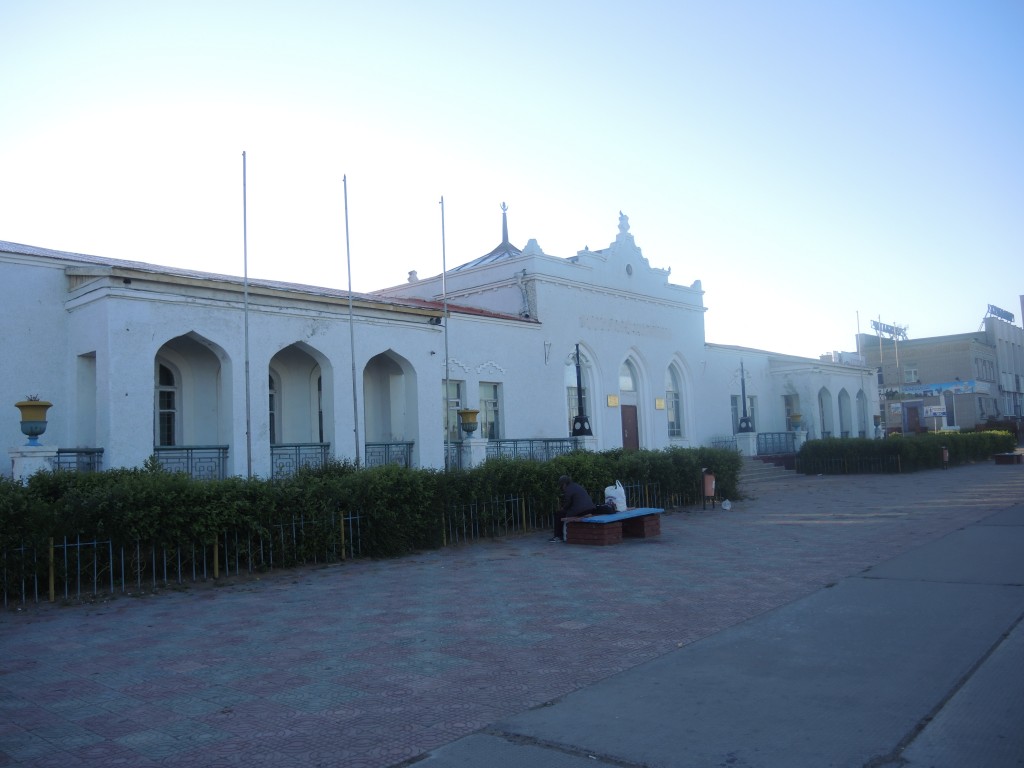
at about 05:00. However, immigration and customs don’t open until 08:00 and the process doesn’t start until after everyone’s had their morning beverage or about 08:30. At this point, ours is the only “wagon” at the station. G had told us to expect this as typically only one or two carriages from this train make the crossing into Russia and the others drop off through the night. As usual, the toilets on the train are locked but since we haven’t passed through immigration and thus haven’t officially left Mongolia, we were allowed to exit the train and use the station bathroom for a fee of 200 tugriks or about fifteen cents. This is something of a boon but only if your body cooperates and you can complete all your business prior to 08:00 when you need to be on the train and both the exits and WCs are locked. Though G had told us about the overnight decoupling, I didn’t expect it to look like this:
I think John is also looking for the missing engine.
Immigration was the first group through and they collected our passports and disappeared from the train. They were followed by one man who I assumed was a soldier – he was dressed in military fatigues after all – but he could have been from customs or simply looking for military contraband. He rather cursorily inspected the luggage space in the cabin (both under the seat and the nook above) and dropped open a ceiling panel in the corridor. After he completed this task, we sat and waited.
After an hour and a half or so our enforced patience was rewarded with the return of our passports. As part of the process, the immigration officer flips through your passport for one last verification that it has been appropriately stamped and matches your face to the photo before returning it to you for the final time. While our passports were undergoing this review, his assistant’s cell phone rang and he paused to look for the source of the noise. His phone rang next, increasing his confusion until they both realized that the phones ringing were theirs and not ours.
Once this process is completed for the entire carriage, customs came through for another rather perfunctory look about. I didn’t check but I guess we were off to cross another no man’s land at about 11:30. The crossing into our official arrival point in Russia needed about half an hour and perhaps because the area appeared to include a small village,
it was a bit militarized,
and there were two small points of possible embarkation.
The toilets remained locked. Full coverage of this transit is here.
We reached the station at Naushki – a town with a population of about 3,400 – and the process began anew. Groud told us to be prepared to be on lockdown for another three hours or until about 15:00. But hallelujah! Russian immigration has discovered computers and scanners. Rather than collecting our passports and disappearing with them for several hours, the immigration officers performed all their duties in the train corridor.
G was surprised because she’d completed this trip in the opposite direction just a week before and the Russians were still using the old process. We don’t know when they made the change but our group had to be among the first to experience it. The process went smoothly and quickly and once our visas were stamped – meaning we were officially in Russia – we were permitted to leave the train for a bit over an hour. We walked first to a produkti (a small store that sells groceries, liquor, sweets, etc.) and made a few purchases. We explored a bit without straying too far from the station. In our walk, Rose, Ana and I came across this:
World War II memorials are ubiquitous throughout Russia and with its rather small size and remote location Naushki was no exception.
           Before reboarding the train for the trip to Irkutsk, Lu and I decided to get a beer. The store closest to the station sold only mead. Lu wanted a “real” beer so we walked a bit further on. I chose to try mead for the first time. It’s not exactly a bucket list item but it is something I’d wanted to try. I don’t know if this was good mead or bad mead but I liked it enough to drink the full half liter.
All of us were excited to be in Russia and were madly snapping pictures out the train windows.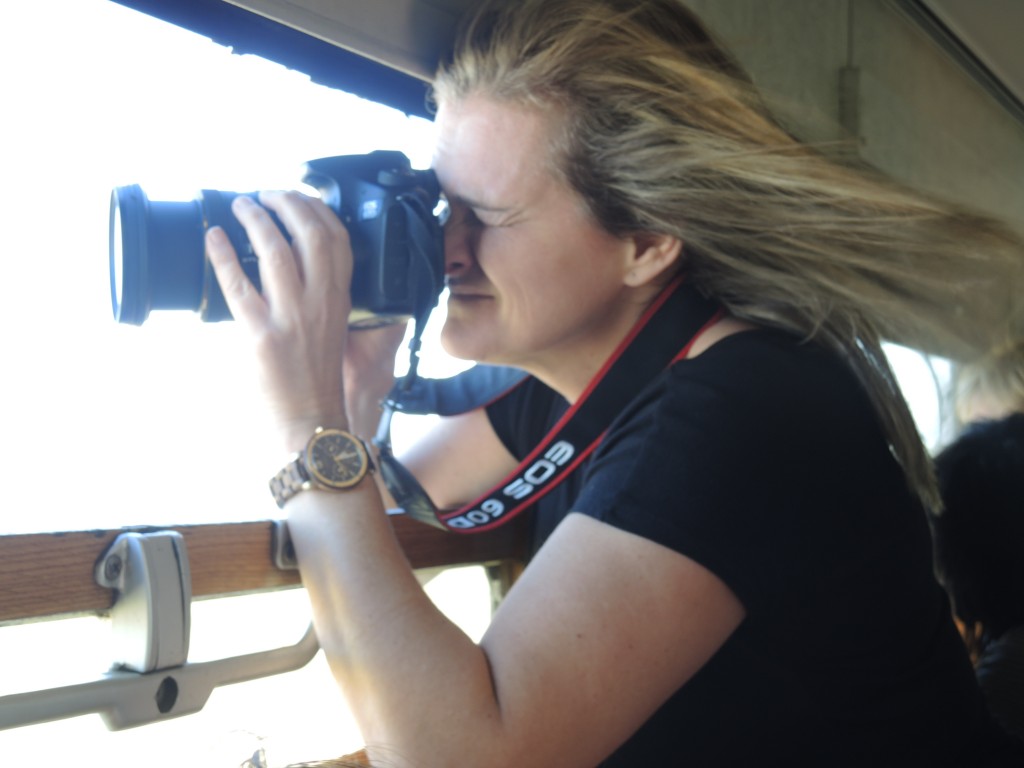 This leg of the trip actually gave us our first glimpse of Lake Baikal and that led to more electronic camera clicks. Little did we suspect how soon the landscape would become nothing more than an “Ooh-aah”.
This leg of the trip actually gave us our first glimpse of Lake Baikal and that led to more electronic camera clicks. Little did we suspect how soon the landscape would become nothing more than an “Ooh-aah”.
Two last thoughts before I close. The first concerns adventures in timekeeping. Mongolia is on Beijing time and, despite its size, China has only one time zone. So after making the initial adjustment to the twelve-hour difference between Beijing and Washington, knowing the time and staying in the rhythm of a typical day was fairly easy. But now things would start to get a bit confusing. First, consider that we’ve traveled about 1400 kilometers west from Beijing a journey that in the U S would cross at least one time zone meaning we would gain an hour. Even though that didn’t happen, neither our circadian rhythms nor our clocks were disrupted.
Russia has nine time zones (until May 2010 it actually had eleven) and here’s where it gets confusing. By the structure of Russian time zones, Beijing would be in the same time zone as Irkutsk or four hours ahead of Moscow. However, Beijing is five hours ahead of Moscow so despite having traveled west we actually had to turn our clocks forward an hour to synchronize with the local time. We would pick up five hours as we crossed Asia and Europe by the time we reached Moscow. However, riding the train requires you to remain aware of the time in Moscow because all the train schedules are published using Moscow time (a point I will return to from – pun fully intended – time to time). So if the schedule says we’ll arrive in Irkutsk at 15:30 our local arrival time would be 10:30.
The second is that, as I hinted above, I feel so fortunate that our group has bonded to become something of a fellowship. Of the eight of us (including Groud), Lu and Ana knew one another prior to the trip but none of the other six. The same is obviously true for John and Anne but excepting the handful of emails Erin and I exchanged before the trip we were all otherwise strangers. This is a true blessing because given the amount of time we’re spending together and especially given the close quarters of our sleeping quarters on the trains, the experience could be quite different and substantially less pleasant. Next stop Lake Baikal.
Â
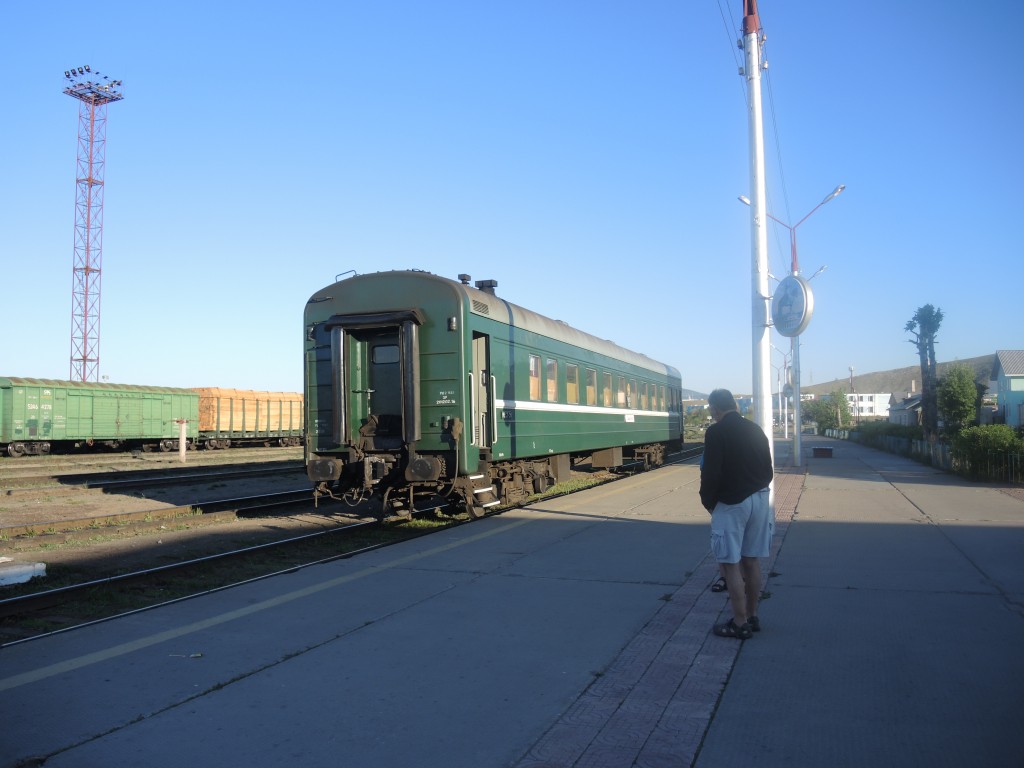
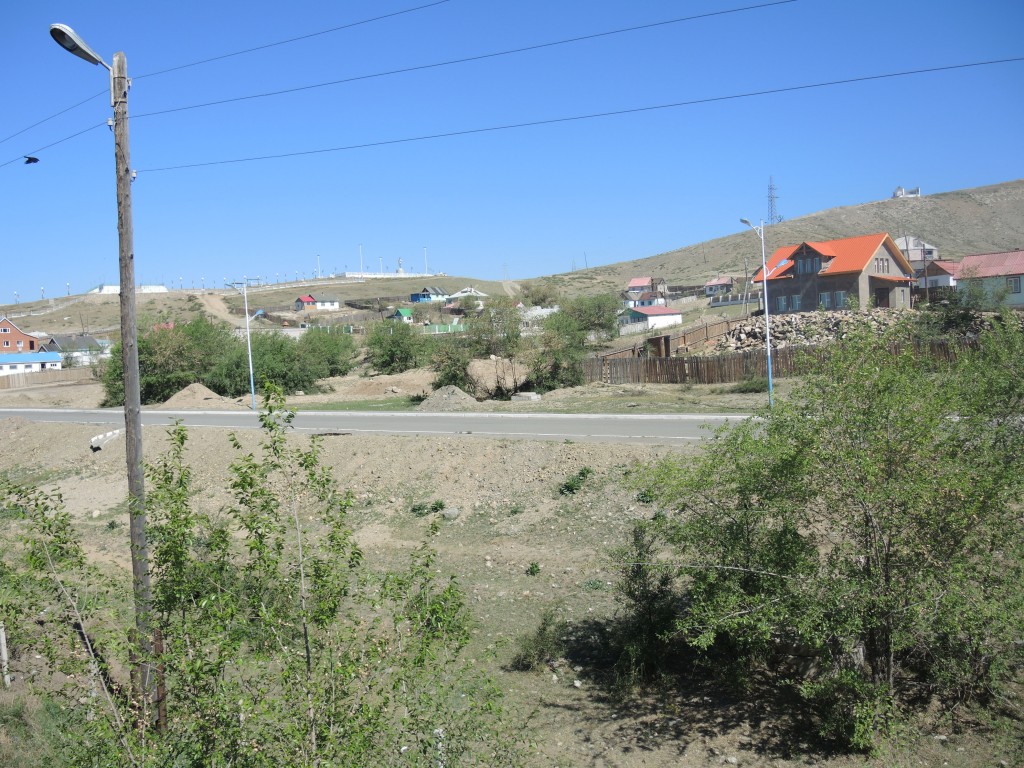
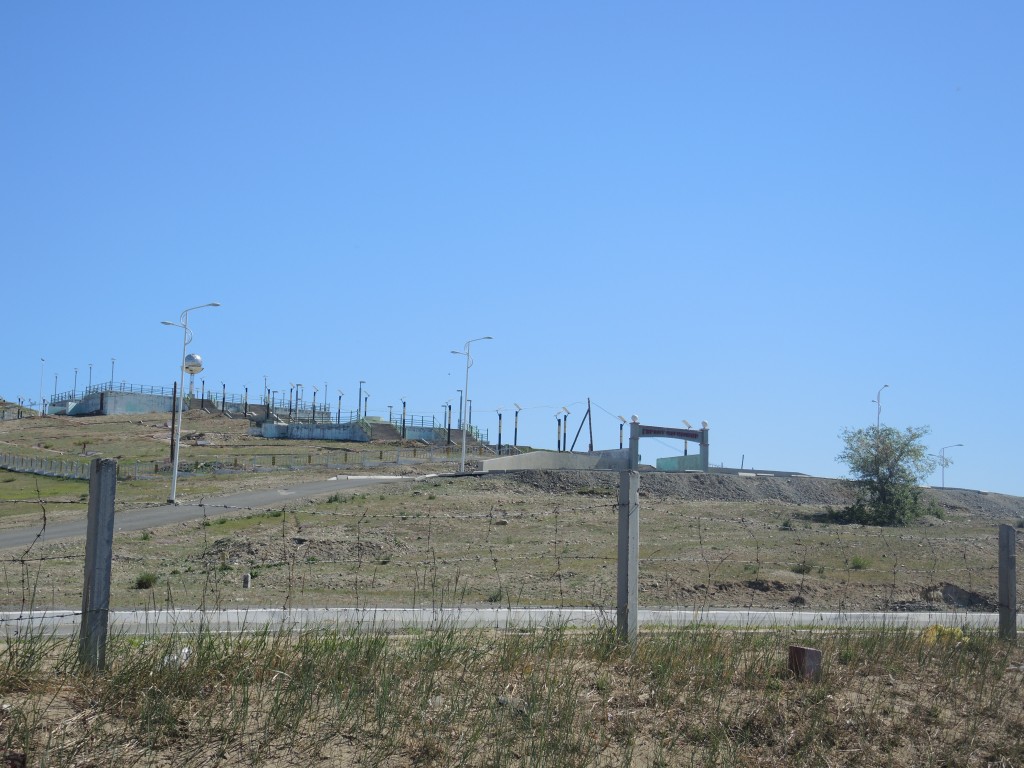
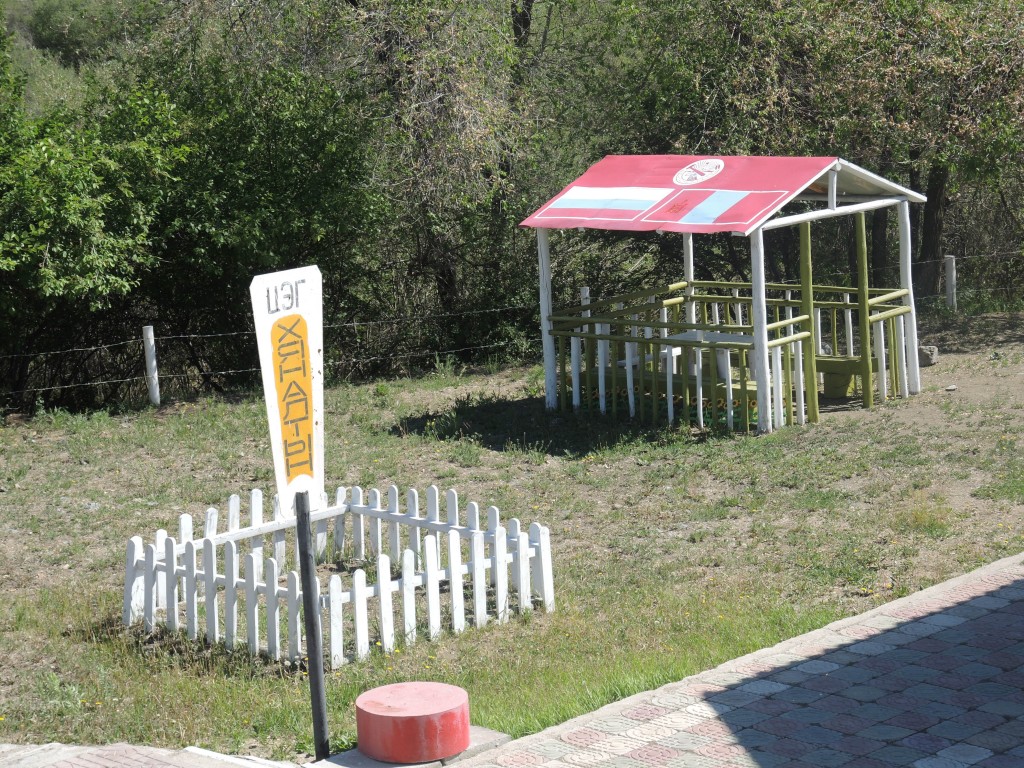
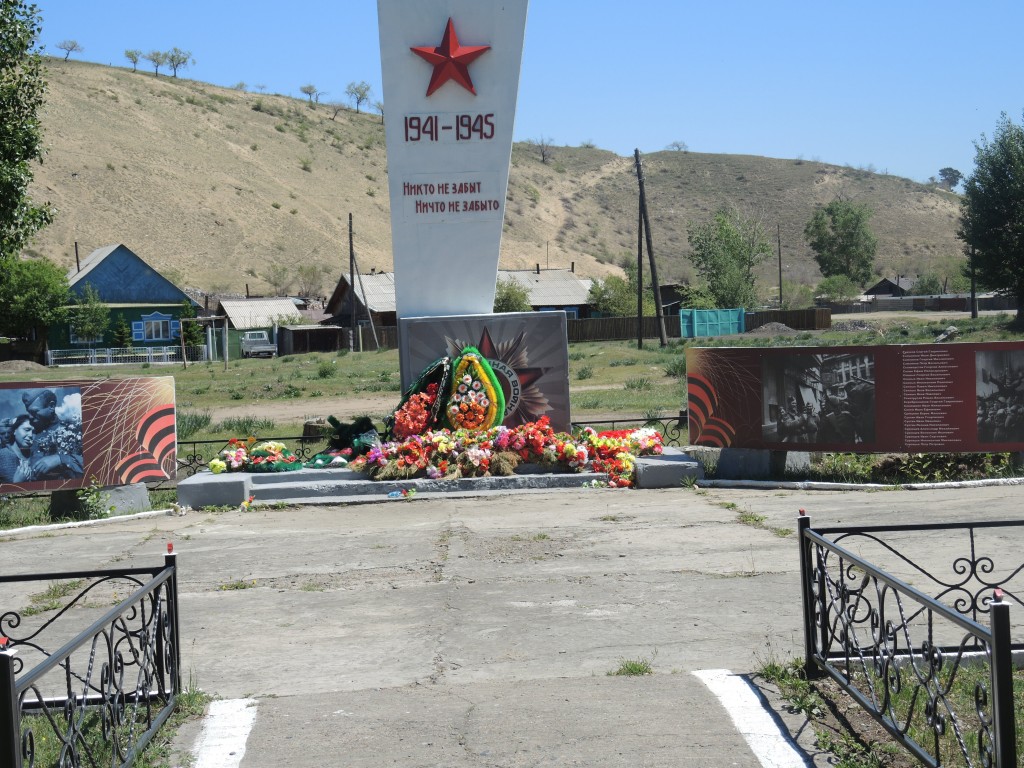
The time issues would have driven me mad! Oh, those crazy Russkies! In my own travels through NZ and Australia that there are war memorials from WWI in every town we have ever been through. Interesting that we don’t find memorials to any wars ubiquitous across the USA.
WONDERFUL Post. thanks for share… waiting for more.
Your blog post is just wonderful.
jake
I needed to thank an individual for this wonderful read!! My partner and I are definitely savoring every little bit